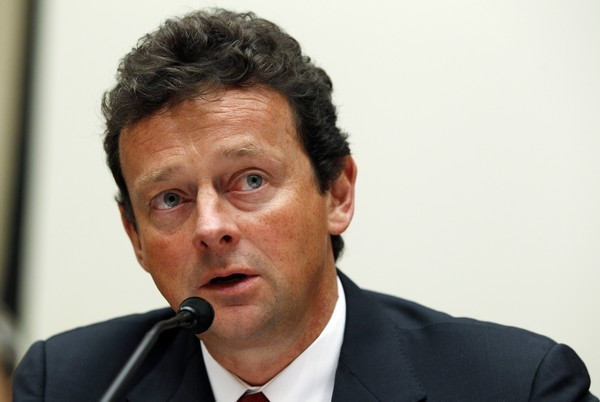Anger at BP as Tony Hayward refuses to 'take the blame'; final session

Anger at BP was growing amongst US congressman as the final session of the Chief Executive's hearing began.
"There is a growing feeling of frustration amongst congressman that your answers are showing a distinct lack of candour," said Bart Stupak, chairman of the hearing as Mr Hayward refused to agree or disagree with any of the questions from the subcommittee.
He told Mr Hayward that they expected him to be "more forthcoming and less evasive".
"We've launched an investigation which has identified seven areas – cement, casing, integrity pressure measurements, well-control procedures and three areas around the failed blowout preventer," said Tony Hayward to many of the questions asked of his company's responsbility in the blow-out which occured, "That investigation is ongoing."
As full congress was invited to ask questions to Mr Hayward, many of the Democratic congressman focused on a testimony from four companies - Exxon Mobil, Conoco Phillips, Shell and Chevron - the day before, which stated that "they would not have designed the well in the same way BP did".
The congressmen however were refused an admission of 'responsibility' from Tony Hayward that his company, had indeed been solely responsible for the safety flaws which led to the blow out:
"I'm not prepared to speculate on what may or may not have made a difference until such time as the multiple investigations are concluded," said Tony Hayward continually to the question of BP's involvement in what went wrong.
With no admission of BP's failure - the questions moved on to how Tony Hayward might have been involved in the build-up of events at Deepwater Horizon - however they were met with a blank response:
"I can't answer that question because I wasn't there."
Tony Hayward's refusal to acknolwedge his company's role in the failure to prevent the oil leak, along with his own involvement in events that indirectly led to safety issues at Deepwater Horizon left politicians and the public with very little to go on from today's hearing.
However, two admissions that Mr Hayward made towards the end of the session show where things might go from here:
"There were decisions taken by people at the time, and it appears to be that they had to do with money, but it's not clear." he said, before adding:
"I believe that the blow-out preventer is the ultimate fail-safe in preventing an oil spill" saying that the Blow-out Preventer's three failures to stop the explosion from leaking out, was a failure of not BP but other parties involved.
"The government has named four responsible parties - BP, Transocean, Mitsui and Anadarko," said Tony Hayward when asked who he thinks is responsible for it.
© Copyright IBTimes 2025. All rights reserved.





















